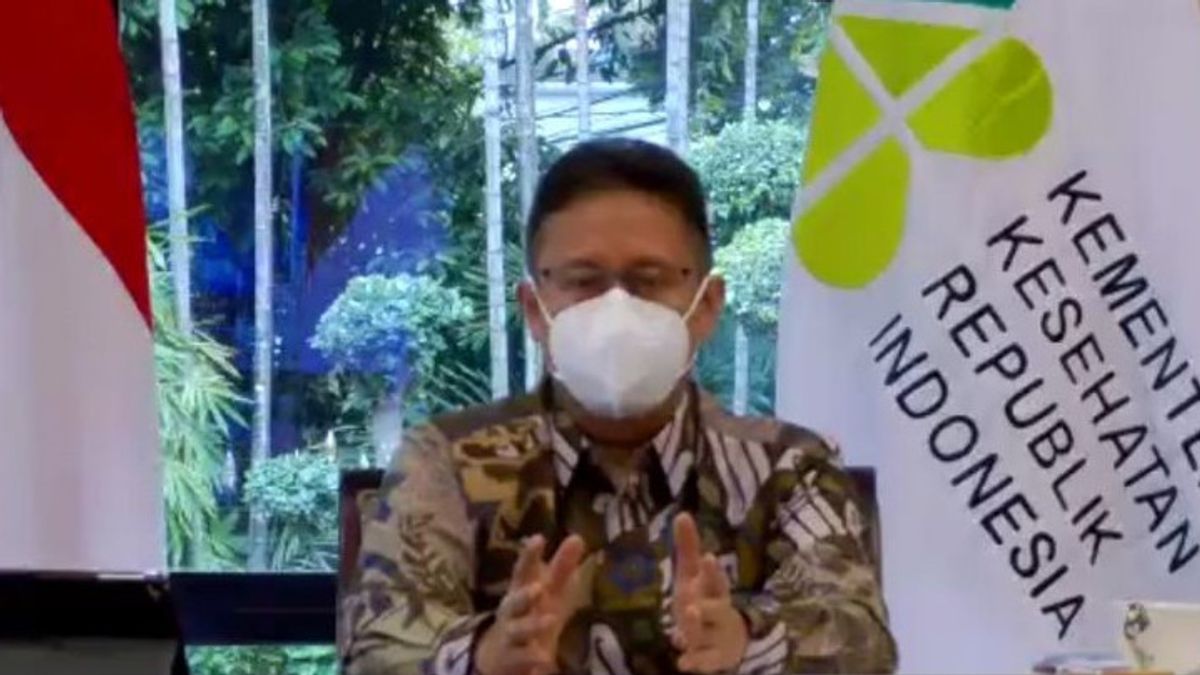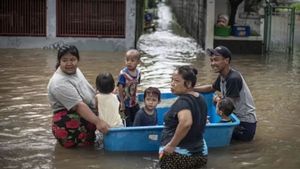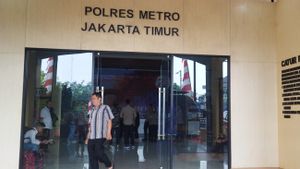JAKARTA - The government has not yet decided to convert referral hospital beds for COVID-19 patients when the third wave of a spike in cases begins to appear.
Based on the Ministry of Health's records as of January 26, there were 7,688 cases of COVID-19 including cases of the Omicron variant being treated in hospitals throughout Indonesia. The rest, do self-isolation or centralized isolation.
Meanwhile, the available COVID-19 bed occupancy ratio (BOR) in Indonesia is 70,641. In other words, the BOR for COVID-19 in Indonesia is still around 10 percent.
From this data, Minister of Health Budi Sadikin said that the hospitalization rate of COVID-19 patients during the spread of the Omicron variant was lower than the surge in the Delta variant in mid-2021.
So, the government is not worried that the Omicron transmission will cause the hospital to be full.
"This variant of Omicron has lower hospitalization. The severity is also lower. So, we will see fewer hospital admissions. So, more people affected by Omicron are treated at home or isoman," Budi said on Thursday, January 27.
Budi proves this with data on the Omicron case, which is currently being treated at the hospital. As of January 26, there have been 1,988 cases of COVID-19 of the Omicron variant that have been detected.
Of these cases, 854 Omicron cases were hospitalized. A total of 86 patients are still being treated, 765 patients have recovered, and 3 patients have died.
Of the 845 Omicron cases treated, the majority of cases were asymptomatic (OTG) and mild symptoms. The details are 461 cases of OTG, 334 cases with mild symptoms, 54 cases in the moderate category, and 5 severe cases.
"Omicron is high in transmission but low in severity because most of them are OTG, people are asymptomatic or have mild illness. So maybe it's just a runny nose, cough, or a slight fever that can actually be cured without needing to be taken to the hospital," explained the Minister of Health. .
Sort out patients who are hospitalized
Given the highly contagious nature of the Omicron variant, an increase in the occupancy of COVID-19 beds in hospitals will undoubtedly occur.
To maintain the stability of bed capacity, not all COVID-19 patients, including those exposed to the Omicron variant, need to be treated at a referral hospital.
Budi said, when active cases of COVID-19 continued to increase, the hospital would sort out which patients could be hospitalized.
Primarily, patients who need to be treated are cases with moderate to severe symptoms. Meanwhile, cases with asymptomatic people (OTG) and mild symptoms can self-isolate (isoman) at home.
"We'll see what kind of hospital is admitted and we will sort out those who really need hospital treatment. If those who are positive have no symptoms, they will be persuaded to isoman so that the hospital can be used by friends with more severe (symptoms)," Budi said in a virtual press conference, Thursday, January 27.
Budi then details the categories of patients who need to be treated at the hospital. The hospital will prioritize patients from vulnerable groups such as the elderly and people with comorbid or congenital diseases.
"We need to make sure that the elderly are well cared for. We need to prioritize the elderly being vaccinated first and if there are comorbidities, they are prioritized to be sent to the hospital," said Budi.
Furthermore, COVID-19 patients who need to be hospitalized are cases who experience symptoms of shortness of oxygen saturation below 95 percent, and people who have not been vaccinated.
Meanwhile, if COVID-19 cases are asymptomatic, have mild symptoms, oxygen saturation is above 95, and are not comorbid, they can self-isolate.
However, if the house is not adequate for self-isolation, they can ask to be referred to a hospital or centralized isolation place.
"If he is asymptomatic, without symptoms, he can be treated at home. There is no need to panic. Isoman, take vitamins. We have provided telemedicine. He can be contacted and he can be treated remotely by a doctor and we can send the medicine directly to them," Budi explained.
"Except for congested places where families gather, family gatherings are inevitable in centralized isolation at homesteads," he added.
The English, Chinese, Japanese, Arabic, and French versions are automatically generated by the AI. So there may still be inaccuracies in translating, please always see Indonesian as our main language. (system supported by DigitalSiber.id)













